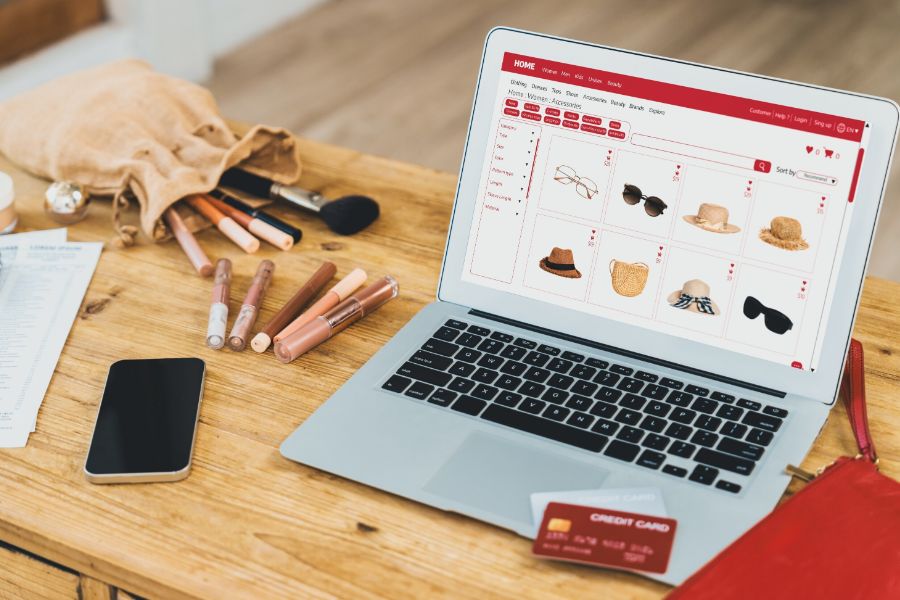It is necessary that every business owner tackle the stock strategically and effectively. Stock Control System is a must as it can bring differences between the profit and loss. When retailers obtain great stock control management, the expenses will go down, increasing your profit on every sale.
What Is Stock Control
Stock control is also known as inventory control, which is a process of maintaining the right amount of stock. As a result, the business can meet consumers’ demand, while maintaining the minimum costs of remaining stock.
What Is Stock Control System
Stock control system includes all the functions and steps associated with the management and maintenance of the inventory. The stock control system accounts for all procedures starting from purchasing to receiving / re-ordering products.
Within a few decades, this market has been experiencing a new trend of globalization. Businesses have supervised stock control on notepads. Since the last few years, retailers and manufacturers have started to rely completely on stock control systems for their entire inventory management. Similar to inventory management systems, the Stock management system allows retailers to track goods across supply chains.
Features of Stock Control System
- Assists to maintain a competitive edge and boosts productivity.
- Supports inventory tracking by organizing the warehouse and managing outdated stocks.
- Takes care of sales and shipping.
- Reduces friction in the purchasing process via the procurement process of reordering and supplier.
- Integrate with software and other programs like CRM, ERP resulting in maximum efficiency and accuracy.
A proper Stock control management system should be able to offer the following features for effective management of inventory.
- Barcode Scanning: This feature allows users to scan products with a built-in barcode scanner and update the inventory data automatically. Barcode scanning reduces errors, saves time, and improves accuracy.
- Stock Notifications: They alert users when the stock levels are low or high, or when there are any discrepancies or issues with the inventory. Stock notifications help users avoid stockouts, overstocking, and wastage.
- Generate Report: You can generate various reports and analytics on inventory performance, including stock turnover rate, demand forecasting, sales trends, and profitability. Ultimately, this helps you make informed decisions and optimize inventory management.
- Manage Multiple Warehouse and Point-Of-Sale (POS): It allows users to manage inventory across multiple locations like warehouses, stores, vans, and online channels. With this feature, you can have a holistic view of the inventory and streamline stock transfers, deliveries, and returns.
- Handle Re-Ordering and Stock Returns: The feature automates the process of re-ordering stock from suppliers and handling stock returns from customers. It streamlines the supply chain and improves customer satisfaction.
- Purchase Order Records: This means the ability to record and tracks all the purchase orders from suppliers and customers. These records provide visibility into the inventory status, costs, and revenues.
- Radio Frequency Identification (RFID) Tagging: This feature uses RFID tags to identify and track products throughout the inventory cycle. RFID tagging enhances the security, efficiency, and accuracy of inventory management.
- Warehouse Management: The feature organizes and optimizes your warehouse layout, storage, and movement of products. It increases productivity, reduces costs, and ensures safety.
- Demand Forecasting: This predicts the future demand for products based on historical data, market trends, and customer behavior. Demand forecasting helps you plan ahead, balance supply and demand, and avoid overstocking or understocking.
Benefits of Stock Control Management
Proper Management of The Stock
Over stocking or less stocking will result in loss for the company’s business. Less stocks means dissatisfied customers, and over stocking is money loss and wastage.
Speed and efficiency
Manual inventory management may take retailers a lot of time along with inaccuracy. Whereas, computerised control systems work within hours and give more accurate results.
Up-to date data
The inventory control system can automatically update the data. In other words, whenever any information on stock is required, then it can be easily acquired.
Differences Between Stock Control System and Inventory Control System
Stock and inventory – these words might appear to be correlated but there is a vast difference between them.
Inventory control system
- Inventory is used in accounting contexts. Therefore, it is valued at cost using inventory accounting methods and average cost methods. For example, some common inventory accounting techniques are FIFO (first-in, first-out), LIFO (last-in, first-out), and weighted average cost. They affect how the cost of goods sold and the ending inventory are calculated.
- Inventory includes finished products, work-in-progress products as well as raw materials. Raw materials are the parts or components used to make a final product. Work in progress are incomplete goods that require more processing before they are ready to be sold. Meanwhile, finished goods are the completed products that are packaged and ready to be sold.
- Inventory is more used in an actuarial sense rather than a business sense.
- Inventory evaluation is done during the financial reporting period. We hope you know that inventory is subject to depreciation, which means that its value decreases over time due to obsolescence, damage, or spoilage. Depreciation affects your net income and balance sheet.
Stock control system
- Stock is used in the business context. Therefore, it is valued at the selling price, which reflects the market demand and supply for the product. The selling price can change depending on various factors like competition, seasonality, or customer preferences.
- Stock refers to any product that is owned by the company to its customer. Stock is also non-depreciable, while inventory is subject to depreciation.
- Stock evaluation happens frequently, sometimes on a daily basis, to monitor the stock levels and optimize the sales performance. It helps your company to avoid overstocking or understocking, which can affect your customer satisfaction and profitability.
In conclusion,
Choosing the right stock control system is necessary, as this can bring a difference between success and failure in the current competitive business world.
ConnectPOS can be a great ally for your inventory management. Contact us for more detailed information.
ConnectPOS is a all-in-one point of sale solution tailored to meet your eCommerce POS needs, streamline business operations, boost sales, and enhance customer experience in diverse industries. We offer custom POS with features, pricing, and plans to suit your unique business requirements.




